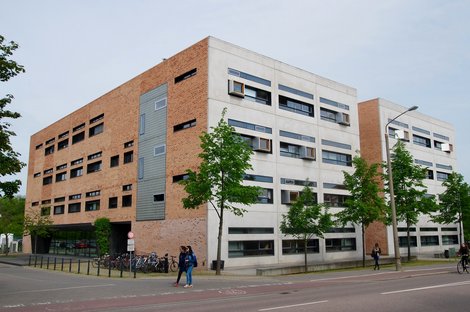The fight against animal epidemics: low cost and effective

Scientists from central Germany aim to succeed with a revolutionary idea
In the shape of the VEROVACCiNES research project, scientists from the Martin Luther University Halle Wittenberg in the German federal state of Saxony-Anhalt have developed a novel vaccine platform to fight animal epidemics. With its cost-saving process, VEROVACCiNES is one of the winners of the highly endowed GO-Bio competition held by the German Federal Ministry for Education and Research. In 2017, the university project is to be outsourced and a veterinary pharmaceutical company will be founded.
The idea is completely revolutionary: Harmless viral components are created in modified and patented milk yeast cells (kluyveromyces lactis) which are subsequently injected into animals, and through the massive activation of the immune system, provide one hundred percent protection against viral infections. This new approach to the development of viral vaccines was discovered by researchers at the Martin Luther University Halle Wittenberg in Germany. Over the course of five years, the two working groups led by Prof. Sven-Erik Behrens - Virology - and Prof. Karin Breunig - Yeast Genetics - developed the technology in the VEROVACCiNES project, the efficacy of which has now been proven. VEROVACCiNES is to be established as a company in 2017. The company is to be based in the central German city of Halle/Saale on the Weinberg Campus, one of the biggest centres for technology and new business start-ups in Germany.
The vaccine is cheap and safe to make, and has a high degree of effectiveness, says Dr. Hanjo Hennemann, Molecular Biologist and currently working on the founding of the company. "The special thing is the specialist use of our yeast. It is easy to use, has undemanding nutritional conditions and is also very reasonably priced." From the amount of yeast equivalent to a standard cube of baker's yeast, it would be possible to produce 50,000 doses of the vaccine! It is therefore a suitable tool. After fermentation, the yeast cells with the non-hazardous components of the virus are dried directly, killed and processed into powder without the separation of the virus components. Before use, the vaccine powder is dissolved in an aqueous solution and can then be injected directly under the animal's skin. "The virus components remain in the yeast; this omits the high-cost purification process. The second advantage is that the yeast cells themselves cause a basic stimulation of the immune system. Together with the formation of antibodies, this results in a very strong immune response," explains Dr. Hennemann. According to the biotech entrepreneur, the vaccination platform could also be of considerable importance for threshold and developing countries: Since the vaccination powder does not need cooling it is easy to store and especially interesting for countries with a hot climate.
VEROVACCiNES now has proof of effectiveness for three different vaccinations: infectious bursal disease, viral bovine diarrhoea and avian flu. Two additional vaccines are in an early stage of development. Researchers are also working on a new technology in order to generate combination vaccines. At the same time, the new method is considerably more cost saving than conventional processes in which every vaccine component in a combined preparation has to be prepared individually and is only merged into a finished preparation in the end. VEROVACCINES produces yeast cells, however, which already contain all of the individual components. "We already have different experimental combinations but we don't yet have a finished vaccine. “If its production were to succeed," explains Hanjo Hennemann, "that would mean huge progress."
The new vaccine is not yet on the market as a medical product. "The vaccine for infectious bursal disease is optimised to the extent that it can go into clinical trials. The requirements of the tests are very specific, however, and we are unable to carry them out ourselves," explains Hanjo Hennemann. Discussions are currently under way with two veterinary pharmaceutical companies that want to test two of the vaccines.
Intense preparations are also taking place for establishing a veterinary pharmaceutical company. The feedback from national and international investors has been positive. VEROVACCINES is now seeking publicity with the goal of attracting interest. This year, for example, researchers from Saxony-Anhalt - as the only contribution from Germany - participated in the European Animal Health Investment Forum in London.
Investment funds need to be secured, and the initial sales achieved, in time for the aspired launch of the company next May.
With its idea, in 2012, the team of researchers was one of the winners of the Go-Bio competition held by the German Federal Ministry for Education and Research. The goal of the highly endowed GO-Bio programme is to support developments from fundamental research all over Germany in order to enable the founding of biotechnology companies. The competition is big and the success rate is low: of 100 participants there are only around five winners per round. Hanjo Hennemann is proud to be in the winning group. Its success in the differing funding programmes has so far seen the group earning five million Euros in support. "This new and exceptionally flexible vaccine technology and the vaccines generated with it provide the ideal conditions for healthy animal rearing and the safe production of food products," explains Hennemann.
Author: Anja Falgowski
